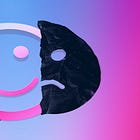"Real self-care is not a thing to do; it’s a way to be”
An interview with burnout expert and bestselling author Dr. Pooja Lakshmin, MD
I’ve written before about the serious problem of a ‘wellness’ industry that promotes ‘self care’ while ignoring the underlying issues that are causing so many of us to be exhausted, burnt out and even struggling with chronic illness. It takes systemic issues and makes them an individual problem for the ‘self’ to solve.
So we have a proliferation of self-help books, influencer-led retreats and boot camps, and products (red light lamps, essential oils, crystals, etc.) that make people feel like they are one consumer product away from feeling well. Few, if any, of these offerings are solutions. At best, they might be a band-aid. At their worst, they cause physical or emotional harm and drive people into financial debt.
Into this hellish swirl of commodified wellness steps
, a psychiatrist, best-selling author and a contributor to The New York Times. Dr. Lakshmin serves as a Clinical Assistant Professor of Psychiatry at George Washington University School of Medicine.Dr. Lakshmin has spent thousands of hours taking care of individuals struggling with burnout, despair, depression, and anxiety in her clinical practice. Her bestselling book, REAL SELF-CARE: Crystals, Cleanses, and Bubble-Baths Not Included, was named an NPR Best Book of 2023, and has been featured on Good Morning America, NPR’s Code Switch and 1A, Talks at Google, The Ezra Klein Show, The New York Times, Vox, The Guardian, and more.
Dr. Lakshmin helps us understand the difference between what she calls ‘faux self-care’, which is just a sugar high that offers no lasting change, versus ‘real self-care’, which will actually bring you the kind of difference you are seeking in your health and in your life.
She also helps us understand that, as she notes in her excellent book, “Real self-care is not a thing to do; it’s a way to be.” Real self care focusses on principles to live your life by; faux self care provides methods (and usually a bunch of products you need to buy and more things you need to do even though you are completely exhausted).
You can listen to/watch our interview below, or read the transcript.
Enjoy!









The book sounds interesting. Although I don't agree with the view of boundaries (the yes/no/negotiate) sounds like more work than necessary (and more stress-inducing) where there are clear-cut areas in your life that need solid boundaries (e.g. crazymakers!) in order for you to feel better.
I appreciated this alot having been, and sometimes am again, a person with a strong inner dictator whose attempts at even the commodified self-care retreats, products, etc never lasted in their effects. So yes, yes, yes, to self-compassion and its deeper meaning. I appreciated all the principles and their internal focus, not to just reach for the outer "magic bullet" or commodity or societal value, especially as a woman and especially in the US, but to be with oneself and how one thinks and feels and act from that place, that feels like real self care.